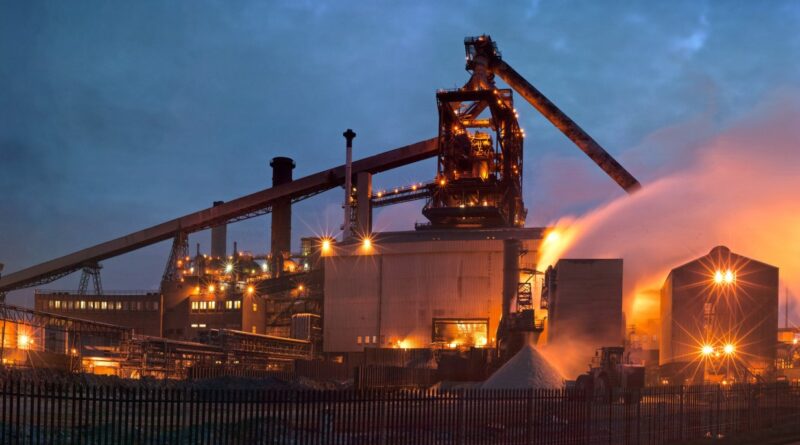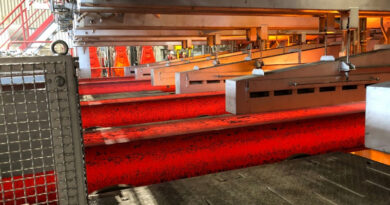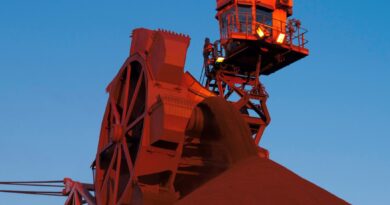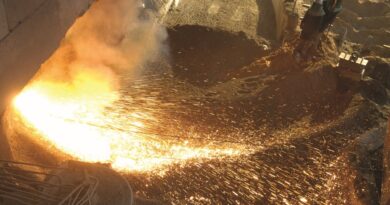AMSA’s Newcastle blast furnace breaks down
Reuters reported that ArcelorMittal South Africa has declared force majeure after a breakdown of a blast furnace at its Newcastle Works in KwaZulu-Natal province. ArcelorMittal South Africa told Reuters “Blast furnace had suffered thermal damage and had been shut down for an estimated three weeks for repairs. Company has communicated with customers and has declared a force majeure in respect of the specific impact of this breakdown.”
ArcelorMittal said it was unable to predict production losses due to the uncertainty around when the blast furnace will be operational again.
“Every effort is being made to resolve the problem quickly and to restart production as soon as possible to limit the impact on customers,” the steelmaker said. A portion of the production will be sourced from the Vaal Melt Shop at its Vereeniging Works plant.
ArcelorMittal South Africa is part of the global steel company Arcelor-Mittal, based in Luxemburg. The company was originally Iscor Ltd., a South African parastatal steel company. It was founded in 1928 and was first listed on the JSE Securities Exchange in 1989.
ArcelorMittal South Africa is the largest steelmaker on the African continent, producing some 4.4 million tonnes of finished steel products in South Africa via four main steel works.
Newcastle Works is the country’s foremost supplier of profile products. This highly efficient and low cost operation, rated among the lowest billet cash-cost producer’s in the world by a leading commodities research institute.
The plant employs around 2237 permanent staff and 51 contract employees. The plant has the capacity to produce 1.9 million tonnes per annum post the blast furnace reline in 2014.
The profile products produced include low and medium-carbon commercial grades, low-carbon rimming steel substitutes, sulphur containing free-cutting steels, micro-alloyed steels, high-carbon wire-rod steels and low, medium and high-alloy steels
Sizeable capital expenditure has been invested for the extensive refurbishment of the plant and to introduce sophisticated information systems. This has optimised operations and sustained global competitiveness at all levels.
The ISO 9002, 14001 and 18001 listed plant is an integrated operation that produces rolled steel from iron ore via a blast furnace route. The plant has three coke oven batteries, one sinter plant, one blast furnace, two basic oxygen furnaces and four rolling mills.
Vereeniging Works is the country’s major supplier of speciality steel products, seamless tube and forge products. The ISO 14001 certified plant employs 908 staff and produces 0.4 million tonnes of final product per annum, of which some 32% is exported.
Its strategic priorities are focused on retaining and expanding its share of the Southern African market, whilst supplying high quality, value-added steels to select international markets.
It supplies input material for the manufacture of safety critical components (SCC’s) for the automotive industry, seamless tube for the petrochemical, oil and gas industries and wire rod wire for fencing and hoisting rope used in deep shaft mining.
The plant’s seamless tubes are manufactured and tested in accordance with API standards and meet the requirements of the petrochemical oil and gas industries. It is manufactured via a mini-mill, incorporating a multi-stand pipe mill and in-line downstream finishing facility. The manufacturing facility consists of a rotary hearth furnace, a cone-type rotary piercer and a multi-stand pipe mill. In addition it has a 22-stand stretch reducer followed by two straighteners, cutting and beveling facilities, as well as an EMI and ultrasonic testing unit.
Forge products includes an extensive range in sizes from 90 mm to 1 400 mm. The Vereeniging plant produces rounds, squares, flats, thick-wall tubes, step-forgings, rings, disks and blocks. Products are supplied in the “as-forged” condition or heat-treated to specification. Extensive machining facilities are available.




